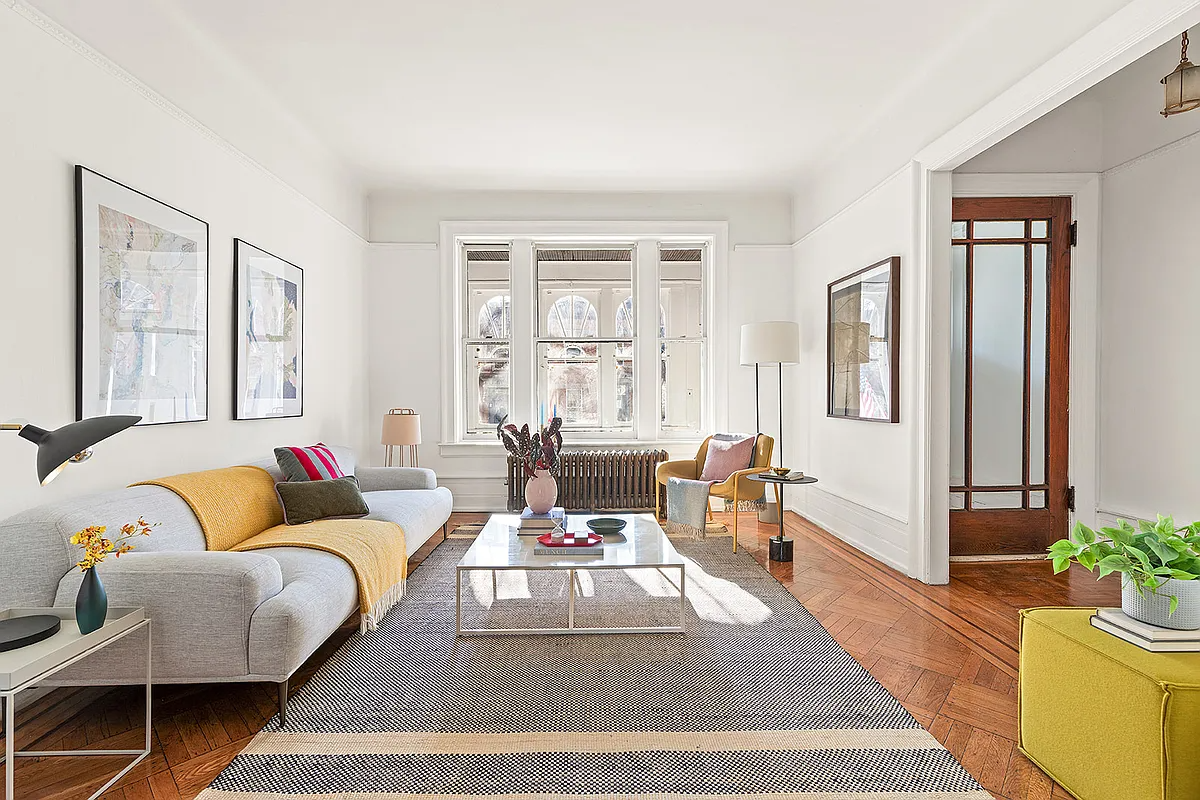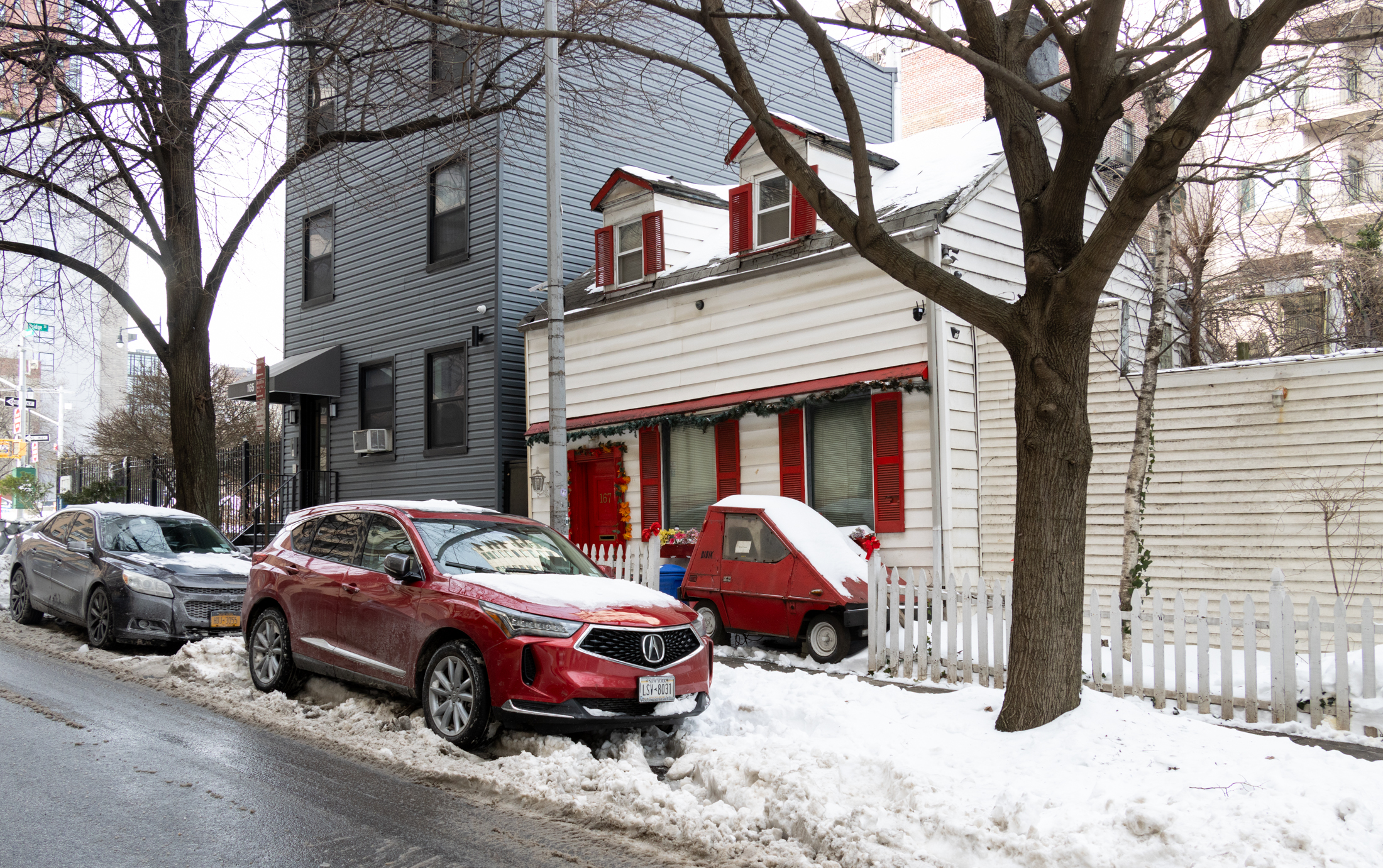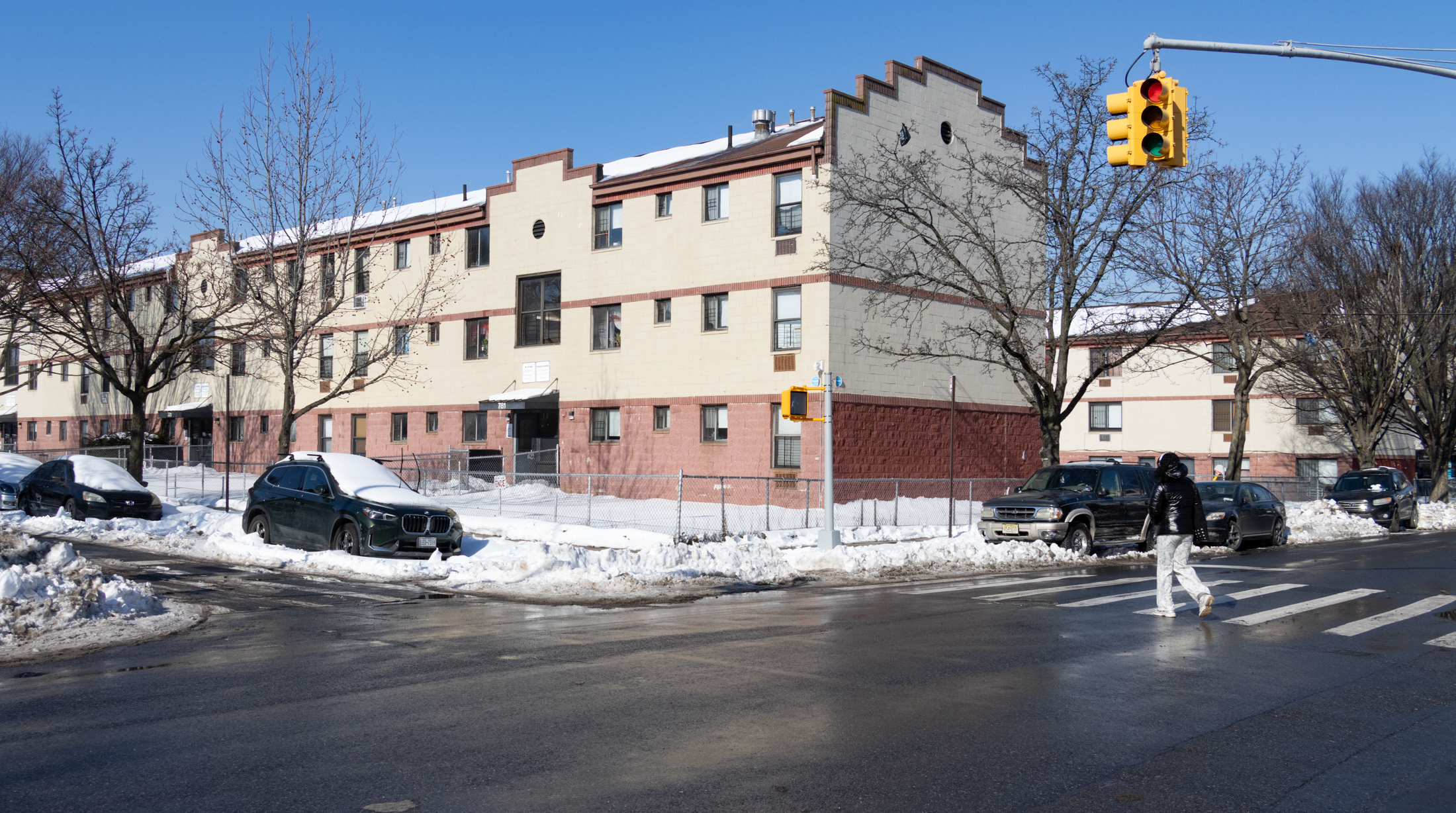These Aren't Your Parents' Buyers
Guess what? Apparently this whole Internets thing is having a broad impact on how today’s twenty- and thirty-somethings go about buying an apartment. Daniel and Luciana Hyman, above, did online research on more than a hundred buildings in Manhattan before settling on a $875,000 two-bedroom co-op in Midtown. That sounds like nothing in comparison to…


Guess what? Apparently this whole Internets thing is having a broad impact on how today’s twenty- and thirty-somethings go about buying an apartment. Daniel and Luciana Hyman, above, did online research on more than a hundred buildings in Manhattan before settling on a $875,000 two-bedroom co-op in Midtown. That sounds like nothing in comparison to the page-and-a-half financial analsyis that one young Goldman Sachs banker submitted with her bid in an effort to convince the developer to accept her 11-percent-below-offer bid. (He didn’t.) We’re more comfortable with taking on debt and paying tomorrow, Mr. Hyman said, displaying the kind of blind optimism that seems to characterize many buyers today. If the cards topple, you can rent your place out and go somewhere cheaper. Or, if you are among the 65 percent of first-time home buyers that finance more than 95 percent of the purchase, maybe you shouldn’t be too worried. You can always walk away from your small deposit if the market crashes, right?
Young Buyers, Prepared and Fearless [NY Times]





anon 1:41 PM
Who wouldn’t. I would also like to buy a brownstone, own a sportscar and take fancy trips. I can’t change the market, I can only work with it. I am very jealous of my parents’ generation, that they could refinance and reap benefits of this boom in a way I can’t. But I also am not going to play the market. I like my home, am happy I bought it, and pay a monthly cost that I can afford (though not live lavishly with). Plus, my monthly cost is higher than an equivalent rental before the tax savings. Since the house doubles as an investment – because it is a place where my money is tied up – and also as a home, I am confident I enough that the combined value is better than continuing to rent.
Though it is important to look at home purchasing as an investment, you also can’t forget that it is also a home. It is also a way of establishing yourself, and being part of your community, and knowing that where you live is home and not just your apartment.That loing-term stability is also a factor.
Am I going to do as well as my parent’s generation in real estate? probably not. Do I think the market will dip? Sure. But I am in the NYC market for the long term, willing and able to withstand a market downturn. No one can predict job loss, future interest rates or the direction of the market over 15 years. But I am confident that, over time, I won’t take a bath – and will at least do better than renting
Chickenmadness, things are different in this generation, but a lot is built on the idea that we can never lose money or have a bad economy. That’s where I get nervous. When everyone starts thinking like that, yikes.
I would rather buy a house for less money at a higher rate, say 8-9%, and refinance later, then get stuck with a house I bought for more than it’s worth.
The couples in the article seemed to be more an example of how foreign capital continues to flow into the Manhattan real estate market – one way in which that market seems to be disconnected from the American economy.
The X times your salary has one weakness when comparing across generations. When my parents bought, their interest rate was 3 times higher than mine is today. That means a big jump in monthly costs, meaning that people will be able to afford houses at a higher multiple of income since the interest rates are so much lower.
However, there is a catch – the resulting high prices make the down payment harder to acquire, and there isnt the same likelihood of refinancing at a lower rate in the future.
As far as paying off a mortgage in 20 years compared to 30, the interest rate again comes in. If my mortgage is at 6%, and I can reasonably expect the stock market to do better than that over time (which is certainly not a risky bet, since we are talking long-term), then it makes sense to invest money elsewhere while keeping that mortgage. I mean, when you have CDs that approach mortgage rates, we have other benefits int his market not accessible to my parents’ generation.
Different, yes. But not crazy.
“However, if a higher multiple of my salary had been the ONLY option and been permitted by the banks, I certainly would have done it. Sometimes you can’t just play it safe.”
No, it’s never the ONLY option. 5x your salary? Crazy talk, for crazy people. That’s where the messed up thinking comes in. You can rent a little longer, or buy something cheaper or in a “less desireable” area.
I know you’ll probably mention the tax breaks of owning, but I just can’t see how spending 5x my salary on something, requiring a huge outpouring of cash a month, is somehow balanced by minimal tax savings. After all, aren’t I putting way more cash out than I would be saving in taxes? I’d rather see that cash in CDs, 401K, stocks, etc.
I was able to buy my house at age 29 in 1974 for about 2.5 times my salary. 4 or 5 times my salary wouldn’t have been an option then because banks were VERY reluctant to give loans in Brownstone Bklyn and required a 40 percent downpayment.However, if a higher multiple of my salary had been the ONLY option and been permitted by the banks, I certainly would have done it. Sometimes you can’t just play it safe.
I might be old fashioned, but I would actually like a mortgage that I could pay off over 15-20 years. I don’t know how you could ever plan to retire if you still have a big monthly mortgage nut and no equity built up.
Brockmeister, I think what gets lost is that no matter the salary or time, whether making 18K in 1975 or 120K in 2007, the home should be 2.5-3x your salary, just like your parents’ house. Nowadays, people are throwing that (admittedly) conservative estimate out the window for 4-5x their salary. When that becomes necessary to buy something, we have an affordability issue, even for those making more than the median.
PS – I couldn’t afford my parents’ normal suburban house either – which they paid 60K for and is now “worth” 1.6 million.
I’m in my mid-thirties. When my parents bought there first house in Southern California, about 27 years ago, I think it cost about 110k, about 2.5 times my dad’s salary (engineer) at the time. They’ve moved since, but that first small house is probably worth about 1.4 million today.
Most young couples these days do not make enough to afford the same house my parents first bought as a young married couple.
Real estate values are insanely high and you folks who say there’s nothing wrong with taking on debt because it worked for you have absolutely no logic at all.
I’ve been very lucky with real estate too, but I’m not arrogant enough to tell other people that just because I took a risk that paid off, they should do the same thing even though they’re taking on even more risk in the form of debt than I did.
Please stop the bragging. It’s sickening.